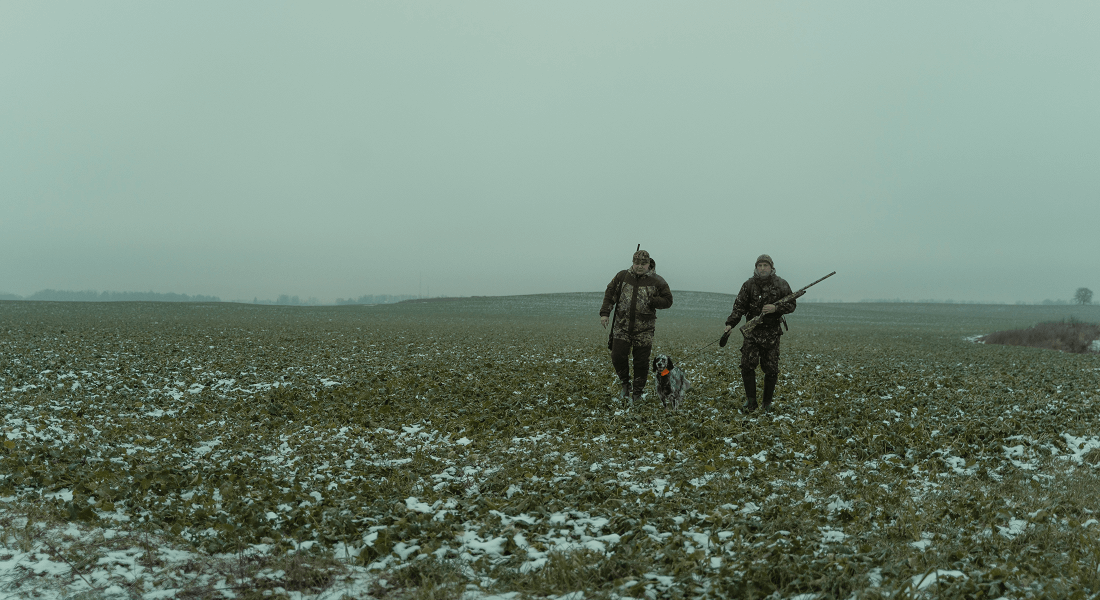Nature draws the hunters out and the leases up
The possibility of shooting game is neither what primarily drives hunters out nor the hunting lease price up. The biggest factors, on the other hand, are associated with outdoor recreation, camaraderie and location, according to a new report from Department of Food and Resource Economics.

The price formation of a Danish hunting lease agreement is influenced by a wide range of factors from location over yield to hunting motivation. But how big an effect does each factor have on price formation? And what motivates Danish hunters to go hunting?
Jonas Vester Legarth, Bo Jellesmark Thorsen and Thomas Lundhede from Department of Food and Resource Economics have mapped this out in the report Valuation of the Danish hunting rental market, that has been prepared for the Danish Environmental Protection Agency.
The report is based on a large survey on motivation, preferences and hunting opportunities, which was sent to 20,000 Danish hunters – almost 10% of all Danish hunting license holders. In addition, the researchers have conducted a hedonic analysis based on information about almost 2,300 hunting leases to calculate exactly how much each factor such as location, landscape characteristics, relation to neighbors, animal release and yield affect the price.
"The analysis shows that the hunting rent is predominantly affected by both local and national location as well as the landscape composition and the social aspects of the hunting that the area encourages. The hunting yield has an effect, specifically the yield of deer, but it is to a lesser extent than the area composition," says Jonas Vester Legarth.
The hedonic analysis shows, among other things, that the price increases by approximately 42% if the hunting area is on an estate and is increased by 29.2% if there is access to a hunting lodge on the area. In relation to game yield, the price increases by 13% if deer have been shot on the area and increases by 1.5% for each individual piece of killed deer thereafter. If game birds are released on the area, the price is increased by 12.3%.
Nature motivates, but there is a great willingness to pay for deer hunting
The nature-focused pattern is repeated in the questionnaire when hunters describe their motivation to go hunting. To experience nature is the single most important motivation for hunting, while the company of friends and experiencing peace and quiet without other people are the two second most important reasons.
"The more hunter-specific things like developing hunting skills and being challenged rank a little lower. What ranks lowest is getting meat or being able to get a trophy. The hunters thus, to a large extent, see hunting as an outdoor recreation activity with a significant social aspect," says Jonas Vester Legarth.
The researchers also conducted a choice experiment for the report on the extent to which Danish hunters are willing to pay to be able to hunt large deer, amongst other things. Despite the nature-focused and social pattern in both the hunting lease price analysis and the hunters' responses, a considerable willingness to pay was found - especially for the opportunity to shoot red deer.
Notably, the experiment showed that the possibility of being able to shoot a single large red deer gives a willingness to pay of DKK 121-140 extra per hectare, while, for example, a ban on the release of birds results in a reduction in willingness to pay for the hunting rental price corresponding to DKK 173-207 per hectare. The contradiction between the expressed willingness to pay to hunt animals and the report's other findings therefore gives rise to further independent analyses, Jonas Vester Legarth points out.
Research-based consultancy
The report has been prepared for the Danish Environmental Protection Agency. They wanted an overview of the economic value of hunting and the many different factors that play a role in both price formation and motivation for those who go hunting. At the same time, there are major economic interests associated with hunting in Denmark, and there are therefore a number of stakeholders associated with hunting and the hunting lease market.
As such, the report does not make recommendations, but spells out each factor in the price formation of hunting leases in order to form an overview of the field and provide a knowledge base for any future administrative adjustments.
"It is important to have a proper data basis as a foundation if you are considering making adjustments in hunting management - that you know what economic conditions you will affect if, for example, you consider introducing area requirements or changing the rules for releasing animals," says Jonas Vester Legarth.
Valuation of the Danish hunting rental market can be read in full here (in Danish).
